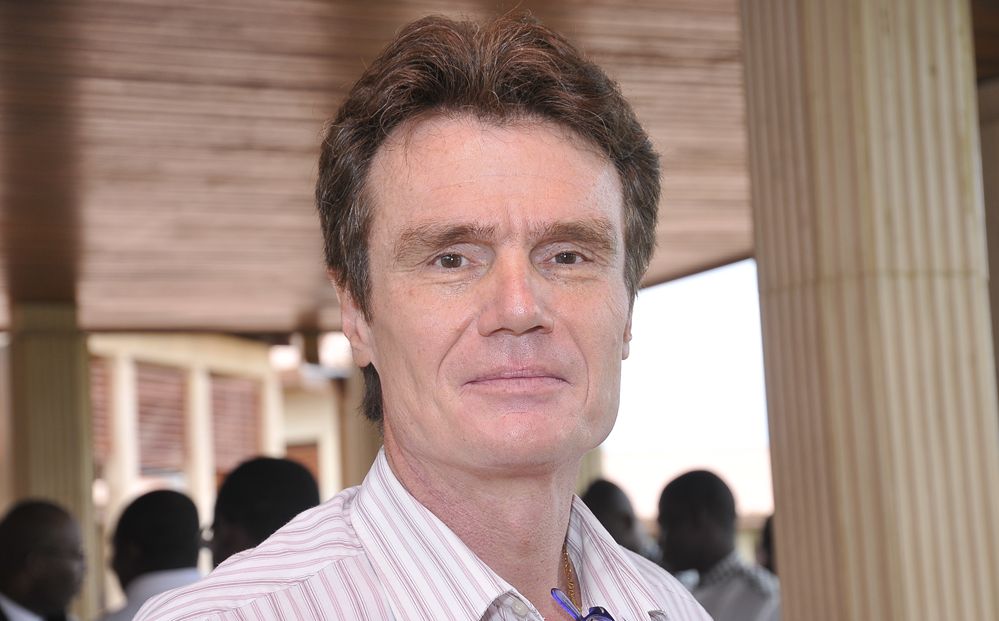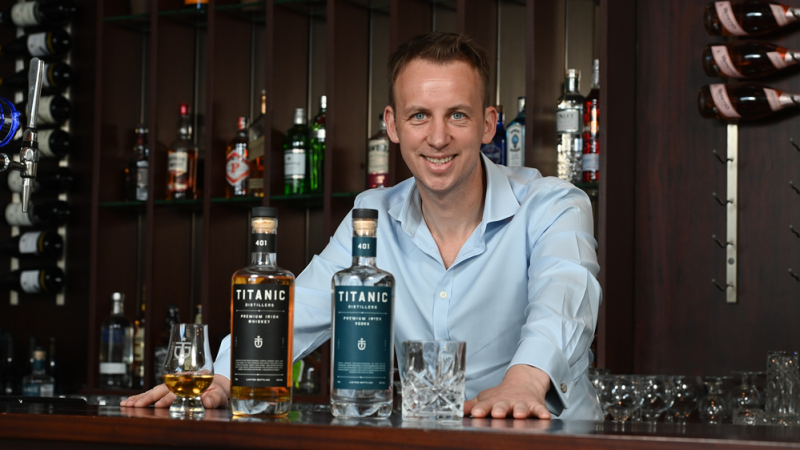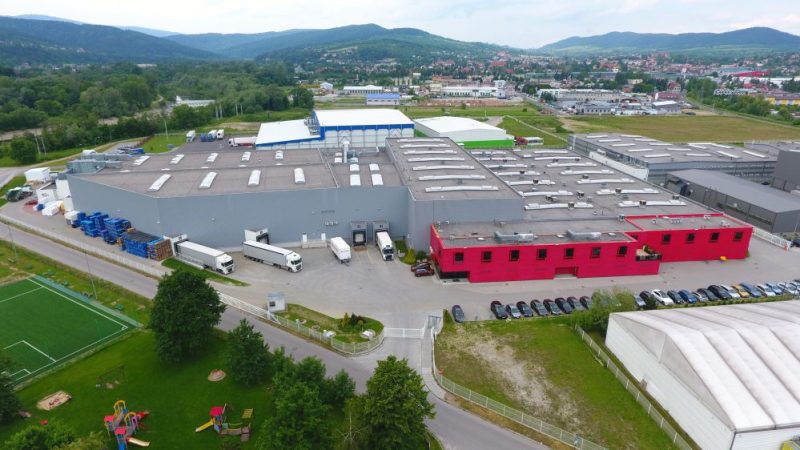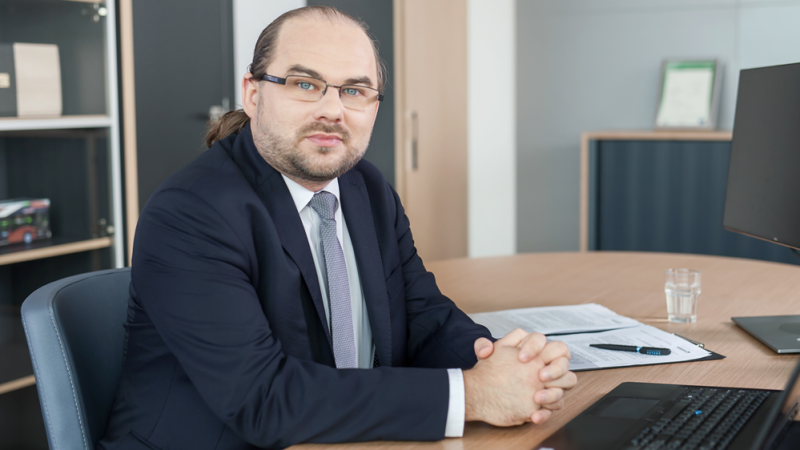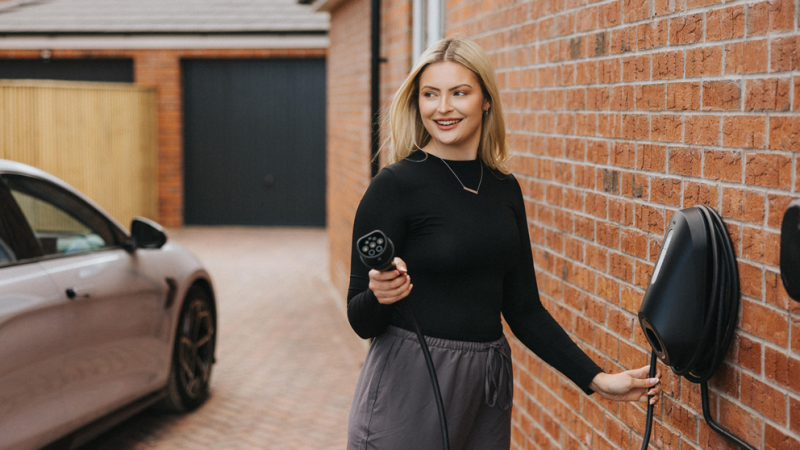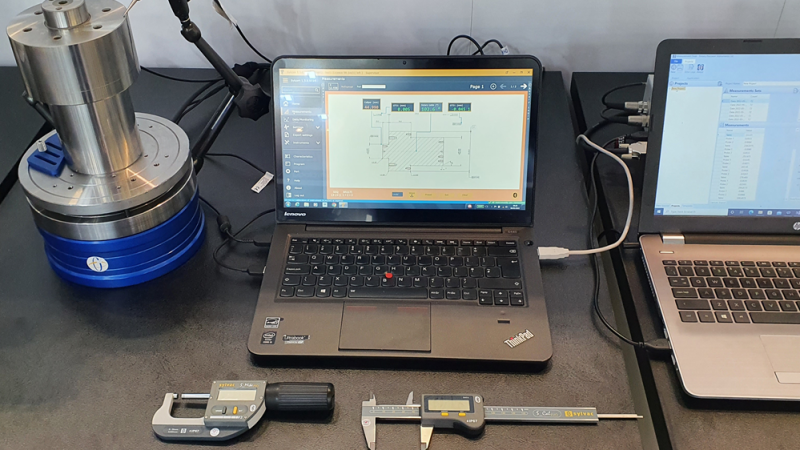SIPH is a giant of the African rubber industry, spanning four countries, including Ghana, Liberia, and Nigeria, and the biggest of the Group’s subsidiaries; SAPH Cote d’Ivoire. As a whole, the Group controls 60,000 hectares of plantations, primarily rubber and some palm oil. These raw materials are processed through the Group’s ten factories, six of which are in Cote d’Ivoire, two in Ghana, and one each in Nigeria and Liberia.
At a time when more than 80% of the natural rubber in the world is produced in Asia, SIPH’s contribution as an African producer is a valuable presence in the market.
“Being in Africa makes a difference,” says Marc Genot, CEO of SIPH. “We have no locations outside Africa, aside from our trading locations.”
Much like SIPH, Genot has built his entire career in Africa, starting out in Nigeria in 1986 before moving on to join the Michelin tyre company, eventually moving on to SIPH’s Ghanaian and Ivorian subsidiaries and climbing the ranks to becoming the Group’s CEO.
It was a career path that gave Genot a unique perspective on the business.
“We are active at every level of the value chain,” he tells us. “We operate plantations and we are specialists in rubber tree cultivation in a way few of our competitors can match. We work closely with smallholders, who provide 80% of our rubber supply. Because we know the business, farmers enjoy working in partnership with us, becoming more than suppliers. We know and value their trade and we can share how to make their farms more productive, profitable and sustainable. So, we use that knowledge to help our partners develop alongside us.”
Greener Rubber
One of the ways SIFCA, the main shareholder of SIPH, has used its hard-earned knowledge is by becoming an early adopter of sustainability practices in rubber, sugar cane and palm oil cultivation. In 2007 it became one of the first such companies to release its sustainable development objectives. It has consistently pursued those sustainability objectives ever since.
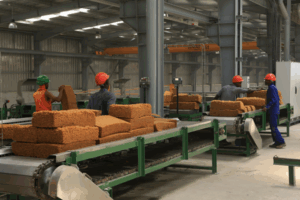 “That led SIPH to become a founding member of the Global Platform for Sustainable Natural Rubber in Singapore,” Genot says. “For the last four years, we have been representing our category of processors and producers at the executive committee. I was myself the co-chair of the organisation for that period.”
“That led SIPH to become a founding member of the Global Platform for Sustainable Natural Rubber in Singapore,” Genot says. “For the last four years, we have been representing our category of processors and producers at the executive committee. I was myself the co-chair of the organisation for that period.”
SIPH’s mandate at the executive committee has since come to an end, but the company remains committed to the standards of sustainability it has helped establish. Of course, that commitment is all the more important for the Group, given how vulnerable the rubber industry is to the impact that climate change can bring about.
“We are facing a number of sustainability challenges right now,” Genot points out. “It is undeniable the weather is already becoming curious in our region. We have been exploring how the climate is going to change the way we farm today, and what the consequences will be for the crops.”
As well as looking at the impact of the climate emergency, SIPH is also identifying techniques and practices that will allow the industry to maintain production despite the consequences of climate change.
“We still have a long way to go but this will be a real challenge for the years ahead,” Genot tells us.
The People Behind Rubber
A separate, but not unconnected challenge to changing landscapes, is the population shift away from rural communities to urban centres, drastically reducing the available workforce for agriculturally driven businesses such as SIPH.
“We have witnessed an exodus in the countries where we operate. Towns are growing at incredible speed, not because of population net increase only, but because people are leaving the countryside to get better living conditions in towns,” Genot tells us. “That is leading to labour shortages in the rural areas where we and our suppliers operate.”
One way that SIPH is responding to this challenge is to develop new low frequency tapping techniques that can improve labour productivity.
“We have been pioneers in these low frequency tapping techniques. It is a win-win situation,” says Genot. “The worker receives a better payday while allowing us to do more with the labour we have, and we are finding ways to replicate this on our suppliers’ farms.”
Alongside these creative solutions, SIPH is going out of its way to value that labour. Three of the Group’s four subsidiaries are certified “Top Employers”, and the firm has established international practices around retention focused on salaries, coaching and training offerings.
“I think we are the only subsidiaries of a completely West African Group to be a certified top employer,” Genot shares.
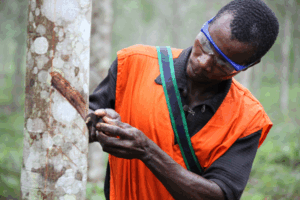
It is these practices and standards that have seen rapid growth in Cote d’Ivoire’s rubber production over the last 20 years. Where ten years ago it ranked in seventh or eighth place for global rubber production, today the country is the third biggest rubber producer in the world. Cote d’Ivoire is a vibrant agricultural country, known not only for its rubber but also as the first exporter of cocoa and cashew nuts and the second African exporter of palm oil.
“Right now natural rubber production is approaching a ceiling. The next challenge will be to make sure that farmers continue replanting as trees age,” Genot says. “At the same time competition is going to be tougher as processing capacities start to exceed agricultural potential. We are going to be living in a more competitive world in the coming years.”
Thierry Serres, a Managing Director at SAPH, the Ivorian subsidiary of the group, has already thought a great deal about how to address these challenges.
“Our priority number one is to ‘grow, baby, grow’,” Serres tells us. “Our target is to reach half a million tons of production in the next three to four years, accounting for 20% of the market share in Africa. We will be planting rubber fields, seizing expansion opportunities as they arise and developing our industrial footprint with new production lines and greater capacity.”
As well as increasing capacity, SIPH is working to better meet the needs of its customers and to extract more value from the rubber it produces, with sustainable practices and techniques paving the way for that. The company is implementing a 360-degree enrichment business model that will see it extract value downstream, using rubber wood for power generation that can be used across different businesses. This will be achieved alongside works to establish autonomous solar farms to enable SIPH to develop energy self-sufficiency.
“Our target is to be 100% EUDR compliant,” Serres says, referring to EU Regulation on Deforestation-free products. “We are already offering EUDR rubber to the market today, and on top of that, we want to offer lower carbon footprint rubber. Our offer is sustainable rubber, meeting higher specifications than our competitors, and also fair in our relationship with our farmers.”
